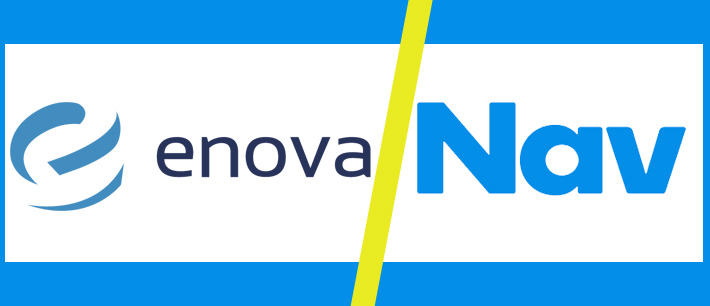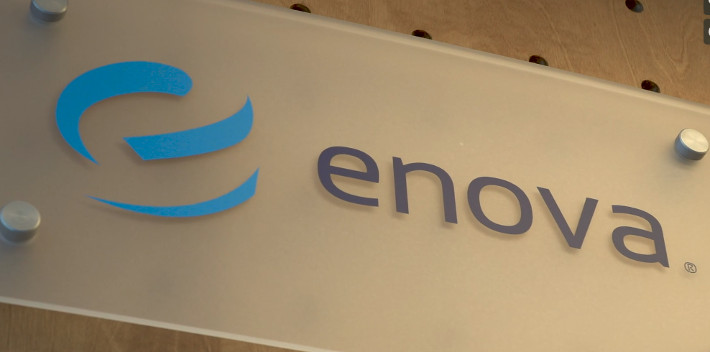Business Lending
Inflation is Impacting Merchants, and Capital Providers are Noticing
February 10, 2022 As the Department of Labor survey reported sky high inflation this week, the 7.5 percent rate is starting to impact the small business financing industry. With things like gas, food, electric, and oil leading the way in rising costs, merchants are requesting more capital, or none at all — as inflation continues to rise.
As the Department of Labor survey reported sky high inflation this week, the 7.5 percent rate is starting to impact the small business financing industry. With things like gas, food, electric, and oil leading the way in rising costs, merchants are requesting more capital, or none at all — as inflation continues to rise.
“I read that 45% of small businesses say they have dealt with inflation by taking out a loan over the past year,” said Ronald Curiel, Business Development Manager at Advantage Capital Funding. “Small businesses are the backbone of the U.S economy and a lot of businesses are relying more and more on small business financing to get them through times of high inflation.”
Small businesses have been forced to raise prices in many areas. Delis are adding surcharges to bacon, lunch deals are disappearing from pizza parlors, and delivery minimums are being raised. According to Curiel, the need for financing has gone hand-in-hand with the rise in inflation.
With payroll costs at a two-decade high and prices of goods going up seemingly exponentially, capital providers might be able to leverage this to fund merchants who haven’t raised their prices or expanded in order to keep up. The challenge is that if inflation keeps rising, businesses will certainly need to put those funds to good use.
Inflation has even hit the equipment financing sector too, with merchants holding whatever cash they have left in hopes of prices of machinery coming down. “We have seen an increase in clients putting off Equipment purchases until the prices of equipment come back down to realistic prices,” said Josh Feinberg, CEO of Everlasting Capital.
“[Merchants] are saying they have seen the prices increase between 20 and 40 percent, which impacts our ability to help business owners scale.”
Enova and Nav Partner Up, Leveraging Data for Instant Funding
February 9, 2022 Intelligent financing platform Nav has announced an expanded partnership with small business lender Enova, bringing a mass amount of data to the X’s and O’s of small business financing approvals and funding processes of companies like OnDeck and Headway Capital, subsidiaries of Enova.
Intelligent financing platform Nav has announced an expanded partnership with small business lender Enova, bringing a mass amount of data to the X’s and O’s of small business financing approvals and funding processes of companies like OnDeck and Headway Capital, subsidiaries of Enova.
According to a joint press release, the move will create the first two-sided open marketplace in small business lending.
“Two-sided means we are bringing together both the demand and the supply,” said Greg Ott, CEO of Nav. [Nav] is the platform in the middle which allows small businesses to compare their options using the real data that the supplier, say lenders like Enova, use so that the small business owner can understand what they qualify for before they apply.”
As the head of a company that uses the value of data as a business model, Ott spoke about the harvesting of such data in ways that’s mutually benefits all parties.
“It’s all permissible, part of the desire for a lot of companies to get more data is you have to have a value proposition for small business owners to share their data,” said Ott. “Because Nav allows you to compare your options, we connect three commercial bureaus, we connect two personal bureaus, and then we connect the bank accounts so we can see the cash flow data. In certain cases, we may connect with merchant processing data, accounting data, and other data sets that the small business owners connect into our platform.”
While data will provide the merchant with options on different types of financing, the lenders also have a benefit in leveraging data provided by merchants to Nav from a marketing perspective. By having merchants input their own information, Enova and its subsidiaries like OnDeck and Headway Capital can offer those potential borrowers ‘instant funding’.
“I think [instant funding] is something that Enova has tried to do for a long time,” said Jim Granat, Head of Enova SMB. We’re trying to make things where the access to capital is as effortless as possible for the hard working Americans or business owners. We try really hard to take that approach in the way we design our product because in today’s world of ‘always online’ expectations for business owners, we want to provide the type of experience that allows them to have certainty, if it’s at all possible, as fast as they can.”
Granat stressed that effortless access to capital for merchants is the best way to differentiate one funder from another when trying to lend a small business money.
“An effortless experience allows [merchants] to know what they can do for their business as well [lenders] being able to capture the different business owners’ attention at the moment that they need it.”
Enova/OnDeck Originated $580M in Q4 Small Business Loans
February 7, 2022 Enova reported Q4 small business loan originations of $580M in its latest quarterly earnings report.
Enova reported Q4 small business loan originations of $580M in its latest quarterly earnings report.
“As is evident by these numbers, our acquisition of OnDeck continues to pay dividends,” said Enova CEO David Fischer. “SMB Q4 originations were 26% higher than Q3 and 99% higher than a year ago, as it was enabled to effectively leverage the strong OnDeck brand and expertise.”
The company’s cost of funds has shrank from 8.3% in the 4th quarter of 2020 to 6.5% in the 4th quarter of 2021. This was made possible in part by adding a new two-year $150M revolving warehouse with JP Morgan.
Enova’s overall small business lending operation is complemented by a consumer arm. As of year-end 2021, small business lending represented 52% of the company’s portfolio while 48% was attributable to the consumer side.
“Within consumer, line of credit products represented 31%, installment products accounted for 67%, and short-term loans represented just 2%,” Fischer said.
Enova finished Q4 with a net income of $49M and full-year 2021 with a net income of $256M.
FDIC Chair Says Community Banks are the Backbone of SMB Lending
February 4, 2022 In a Bipartisan Policy Center forum, outgoing FDIC Chairperson Jelena McWilliams spoke on the future of small business lending post-pandemic. According to her, the future of the industry isn’t in brokering different types of products, but rather merchants relying on community banks to develop and provide interpersonal relationships with businesses who are seeking access to capital.
In a Bipartisan Policy Center forum, outgoing FDIC Chairperson Jelena McWilliams spoke on the future of small business lending post-pandemic. According to her, the future of the industry isn’t in brokering different types of products, but rather merchants relying on community banks to develop and provide interpersonal relationships with businesses who are seeking access to capital.
“Small business lending, which is especially important to community banks, will continue to grow,” said McWilliams. “We monitor these developments through our call report data, and we report it on a quarterly basis. Community banks are a real player in the small business lending space. They are a key resource to small businesses needing credit, they are in a niche area. In most cases, they are more successful lending to small businesses than larger banks.”
McWilliams referenced a study that was published by the FDIC in 2020 dubbed the ‘FDIC Community Banking Study’ that found community banks were playing a much larger role in small business lending than larger banks. According to the study that McWilliams referenced, 36% of small business loans are written by community banks; more than double their share of the industry’s total loan products, which is around 15%.
It seems to show that the belief of regulators is that smaller banks can leverage their size to put a face to the loan. Speaking about fintech and its impact on the lending space, McWilliams stressed that a well-rounded financial product has to have a face to it.
“That personal touch community banks bring to the table is what allows them to be really good in this space, and to actually expand relationships between banks and borrowers. So I think that small business lending today I think they are in a very good place.”
McWilliams concluded her comments on the state of small business lending in a reflection of the overall economy, drawing a connection between the financial health of small businesses and the overall economy post-pandemic.
“Of course, you can never have enough credit or capital to have a vibrant economy and more is better as long as its safe and sound and underwritten well, but I would say that for all the concerns we had at the beginning of the pandemic with so many small businesses not being able to survive and shutting their doors down, we are actually on a really good trajectory in small business lending at this point in time.”
Latin Financial Launches First Lending Podcast in ‘Spanglish’
February 4, 2022 In an inaugural move for small business financing this week, Latin Financial launched the first ‘Spanglish’ podcast for funders, lenders, merchants, and brokers titled the Latin Financial Podcast. Hosted by the company’s CEO Sonia Alvelo and co-hosted by Underwriter Ruth Alustiza, Latin Financial hopes to create an open forum of discussion and education about how Latino-owned businesses can get access to different types of financial products; all in two different languages.
In an inaugural move for small business financing this week, Latin Financial launched the first ‘Spanglish’ podcast for funders, lenders, merchants, and brokers titled the Latin Financial Podcast. Hosted by the company’s CEO Sonia Alvelo and co-hosted by Underwriter Ruth Alustiza, Latin Financial hopes to create an open forum of discussion and education about how Latino-owned businesses can get access to different types of financial products; all in two different languages.
“It was so much fun, but so scary,” said Alvelo, when asked about her experience recording on her first episode. “[I’m doing this] to make sure the merchants and clients have and will have the right information, I know I’m breaking barriers of languages, it’s the right thing to do.”
While still in its infancy, Alvelo is expecting the show to take off. Her target audience among merchants is a growing group of Latino-owned small businesses who have been historically underbanked. Offering episodes in both English and Spanish, the podcast hopes to not only educate the show’s listeners on how small business lending works, but also hopes to serve as a crash course in either Spanish or English for those who are already members of the non-bank finance world.
The show will have funders, lenders, merchants, and staff of Latin Financial on as guests, according to Alvelo. The show has begun a stream of content that will be released on a regular basis that is being uploaded on platforms like Apple Podcasts, Google Podcasts, and Spotify.
“We are doing one episode per week, said Alvelo. “We’re going to add guests, they are already asking me to attend, and lenders. I’ll be doing back and forth, Spanish and English for sure.”
Alvelo seems confident that the show can separate itself from the countless other finance podcasts that exist. With a dynamic of two languages, two cultures, complex financial products, and revolving guests, it seems as if Latin Financial has discovered a niche in the business media space. “The audience can listen in Spanglish about what we do to help business owners in the United States and Puerto Rico. It’s a new way to stay informed, get educated on updated programs in the financing Industry, all in two languages,” Alvelo said. “It’s Spanish and English, equals Spanglish!”
A weblink to the show can be found here.
PayPal: “We are now one of the top 5 lenders to small businesses in the United States”
February 2, 2022 PayPal’s Q4 earnings report failed to mention its small business lending division, but an internal assessment of its Working Capital product was made known through a recent interview published by McKinsey.
PayPal’s Q4 earnings report failed to mention its small business lending division, but an internal assessment of its Working Capital product was made known through a recent interview published by McKinsey.
“Through our PayPal Working Capital product, we are now one of the top five lenders to small businesses in the United States,” said Franz Paasche, PayPal’s SVP, Chief Corporate Affairs Officer at PayPal. “Seventy percent of those PayPal Working Capital loans are going into regions of the country where banks have pulled out, sometimes for good economic reasons,” he continued.
Despite the self-reported achievement, the company’s attention is now focused in a different sector of lending altogether, in the rapidly expanding consumer market known as Buy Now, Pay Later (BNPL).
“Buy Now, Pay Later is a perfect example of the type of investment we are making to give shoppers and retailers more reasons to engage with PayPal,” said CEO Dan Schulman during the company’s recent earnings call. “Buy Now, Pay Later is available in 8 markets, including with Paidy in Japan. We continue to see rapid consumer adoption, with $3.2 billion of Buy Now, Pay Later TPV in Q4 alone, a $13 billion run-rate, with Q4 growth of over 325% year-over-year. We have processed 54 million loans globally since launch, with 13 million unique consumers and 1.2 million merchants using our Buy Now, Pay Later services.”
PayPal’s stock plummeted by 20% after earnings were released that was connected to challenges unrelated to lending facing the company.
Funding Circle Partners With Nationwide in Mutual Referral Program
February 1, 2022 Denver-based small business lender Funding Circle announced a partnership with Nationwide Insurance, in a move designed to improve access to capital for businesses that use Nationwide as their insurance providers. The move is a continued trend in the small business financing industry to create access to resources surrounding business financing in places that merchants are interacting with on a daily basis.
Denver-based small business lender Funding Circle announced a partnership with Nationwide Insurance, in a move designed to improve access to capital for businesses that use Nationwide as their insurance providers. The move is a continued trend in the small business financing industry to create access to resources surrounding business financing in places that merchants are interacting with on a daily basis.
“Funding Circle is thrilled to partner with Nationwide to offer essential resources that seamlessly supplement our customers’ business needs and set them up for success in a competitive market,” said Vipul Chhabra, Managing Director of Funding Circle US.
“This first-of-its-kind partnership with one of the country’s leading insurance and financial services providers embodies our core values,” said Chhabra. “[Our values are] to truly support American small business owners in accomplishing their goals, especially among underserved populations that banks typically are not incentivized to reach.”
On top of access to funding, the partnership offers access to resources surrounding small business financing to Nationwide customers. According to a press release by the companies, this is the first merger of a top insurance company with an online lending platform.
“Today’s hardworking business owners have a variety of insurance and financial needs. They are looking for innovative ways to have those needs met so they can focus on running their companies,” said Kasey Ketcham, Associate Vice President of Commercial Digital Enablement at Nationwide.
“This partnership with Funding Circle is another example of Nationwide’s commitment to addressing the challenges small business owners are facing,” said Ketcham. “[Nationwide is] offering expert guidance and comprehensive insurance and lending resources hand-in-hand to help them make informed decisions to fortify their business and livelihoods.”
According to Nationwide, the partnership will be a mutual referral program, where Funding Circle customers will be exposed to Nationwide products, and Nationwide customers will be exposed to Funding Circle products. Nationwide representatives explained the partnership exclusivley to deBanked.
“Exactly what is provided through Nationwide.com or the app is a link to Funding Circle,” said a Nationwide representative. “Once there, the user can complete an application for loan coverage, but are not granted special exception because they came from Nationwide.”
“They would still go through the loan application and underwriting for funds and vice versa,” said the representative. “The Funding Circle website/app is providing a link to Nationwide that the user can ‘learn more’ through the Coverage Assistant page, or “get a quote” using Nationwide Business Express.”
As Alternative Finance Leaves NYC, Long Island May Be The Next Best Option
January 26, 2022 As things like cost of rent, remote work, and incoming disclosure laws cause uncertainty in the hub of alternative finance, many in the industry have decided to leave New York City. Some however, say the perception of a mass exodus is false, and it is Long Island that checks all the boxes for alternative finance’s new home.
As things like cost of rent, remote work, and incoming disclosure laws cause uncertainty in the hub of alternative finance, many in the industry have decided to leave New York City. Some however, say the perception of a mass exodus is false, and it is Long Island that checks all the boxes for alternative finance’s new home.
“My company started on Long Island and it’s where most of our staff is from, so logically it made sense to keep it there in the beginning of [our] journey,” said Jared Weitz, CEO of United Capital Source. “It’s close to people’s homes so the commute is less for staff and the office space can be 10 to 40 percent less on cost and your loss factor on space is less so the space you do rent, you actually get to use more of.”
According to Weitz, employees in the industry lost a desire to commute during the pandemic. When transitioning from in-person work to remote and then back to in-person, it seems like a commute to Manhattan was a tough sell.
“During [the pandemic], a ton of larger companies who had massive offices in Manhattan ticked it down,” said Weitz. “Staff also didn’t want to commute anymore and so many offices in the city have either moved out to Long Island or stayed in [New York City] to smaller offices and did [remote work] with employees.”
 When asked about the value of a Downtown Manhattan address on a business card, Weitz abruptly dismissed the notion that names like Wall, Rector, and Pine still hold the same prestige as it did in years past.
When asked about the value of a Downtown Manhattan address on a business card, Weitz abruptly dismissed the notion that names like Wall, Rector, and Pine still hold the same prestige as it did in years past.
“No, no, no, no one looks at that anymore,” Weitz said. “Most often people are focused on client experiences, so reviews online, time in business, online presence, what can be found about them.”
Weitz spoke on the quality of employees that come from the New York area, and how their work ethic and work experience are some of the best the industry has to offer.
“Look, I’m from New York so I’m partial and I can see why people say [this]. New York [workers] have a certain grit, and a certain fight with laser focus determination.”
“I think there are people who are smart and who hustle anywhere,” Weitz continued. “While southerners may have a laid-back lifestyle, I know plenty who hustle hard, [but] I do think you can always tell the difference from a New York sales rep versus another.”





























